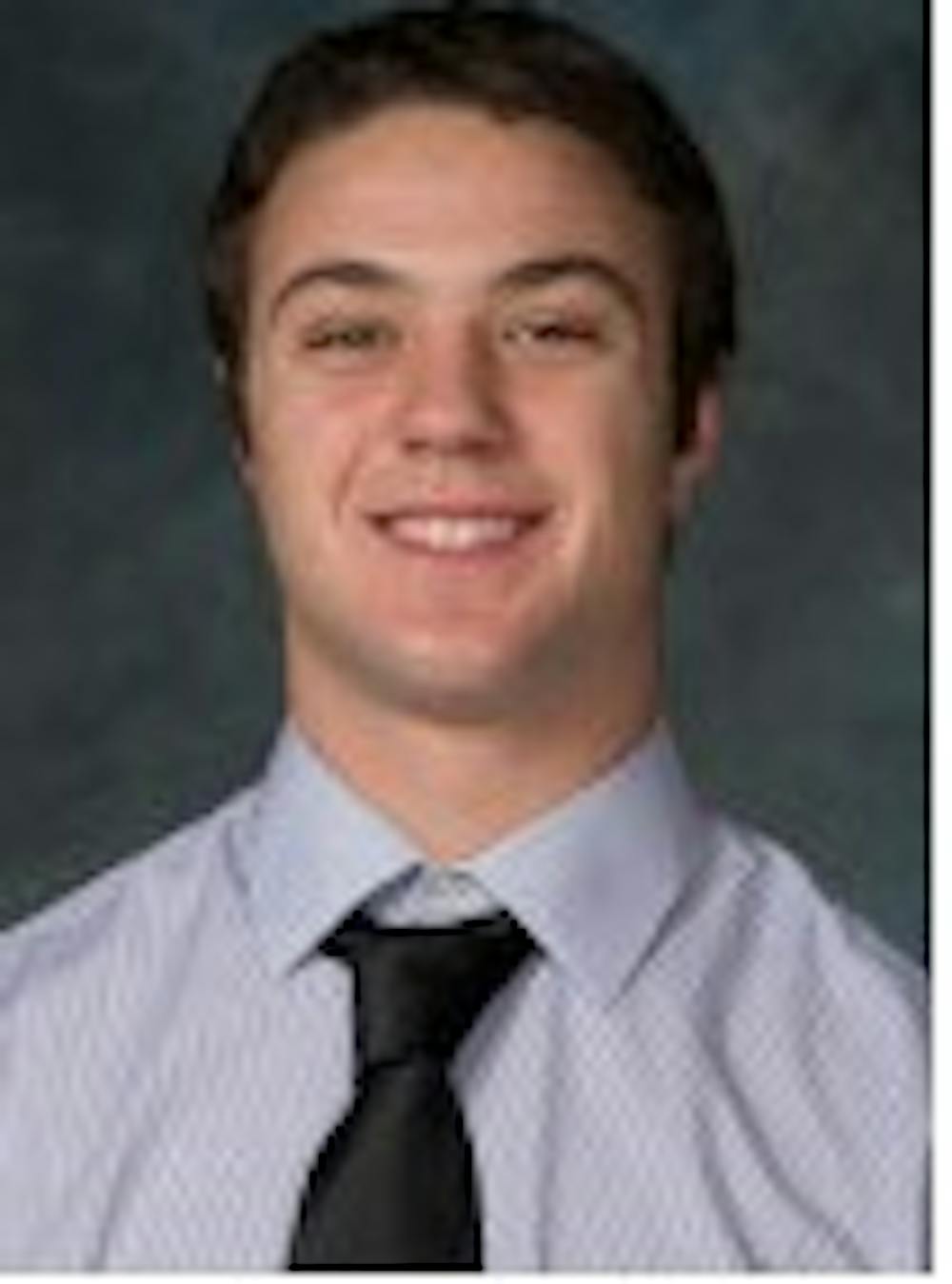The Hopkins wrestling team has had a rocky season this winter, with a number of key competitors like senior Alex McLaughlin and sophomore Isaac Morales, who placed second and third respectively in their weight class last season, suffering from injuries.
While the Jays only placed seventh overall in the Centennial Conference Championship, senior captain Jared Forman gave an outstanding performance for the Jays. The Oceanside, Calif. native came into the tournament as the defending champion in the 174-pound weight class.
This year Forman did not disappoint, defeating three opponents, including one by pin, en route to a second Centennial Conference Championship title.
The title makes Forman only the sixth wrestler in Hopkins history to win multiple Conference championships. Even more impressive is the fact that it was his third appearance in the championship round in his weight class. For his accomplishments, The News-Letter has decided to recognize Forman as our Athlete of the Week. He was kind enough to answer some of our questions.
The News-Letter:What do you think are the key responsibilities of being a captain of the wrestling team?
Jared Forman: There are a few key responsibilities to being the captain of the wrestling team. First and foremost is to make sure everyone on the team is focused and mentally prepared for competition.
While I can only control my area of the wrestling room, I can attempt to do much more to control the culture. The second responsibility is working with the coaches and communicating with them properly. Finally, while wrestling is an individual sport, I feel invested in the success of my teammates, as I truly see it as a team effort.
N-L: Your team has dealt with a handful of injuries. With that in mind, what do you think some of the key takeaways from the season have been?
JF:The injuries this year have been tough. It has made it difficult at times to keep morale high when people keep coming in and out of the room.
An important takeaway from the season is making sure to listen to your body and take time to recover.
It is easy to get caught up in the excitement and grind of the season and not take the important days to relax and let your body heal. That comes with the territory though; Wrestlers have a reputation of working through injuries.
N-L: Going into the NCAA Championships, what do you think are some things that the team will need to work on to turn out a strong performance?
JF: Going into the postseason, I feel the biggest thing for the team is to believe in ourselves. The work has been done, there is not much one can do in the last week before competition. At this point, we just need to trust our training and truly believe that our goals are possible.
Personally I believe in all of my teammates, probably a little too much to be honest, and I believe that I will achieve my goals. With the right attitude and right focus, I think we will have a strong performance at the Regional and the NCAA tournaments.
N-L:What do you think has been key to your growth from being a freshman on the team four years ago, to now being a captain and Conference champion?
JF: There are three main aspects to how I approach wrestling that I personally feel have led to my growth. The first is confidence and optimism. Throughout my four years, even when things were not looking good, I kept my head up and kept moving forward. This has allowed me to improve consistently.
The second was being coachable: I listen to my coaches and trust what they say. Coach Norris and Coach Kraus have been with me all four years now and always help me to improve. This also extends to my teammates; I listen to what they have to say and how they think I can improve. I think the only way to develop as a wrestler and as a person is to listen to everyone around you, take all opinions into account and then analyze the situation.
Finally, and perhaps most importantly, is believing. It is simply amazing how much better you perform when you believe something is possible. I have never counted myself out, and I think that has been a big part of my success up to this point.
N-L: As your collegiate wrestling career comes to an end, what are the lessons that you learned that you will take with you to life off the mat?
JF: This one is always a hard question. A couple of lessons I have mentioned in the previous questions, but the biggest one that I have not mentioned is the simple lesson that hard work pays off.
The more time you put into wrestling, the better you become at it. Talent is a factor for a lot of wrestlers, but I attribute all of my successes on the mat to my work ethic.
This work ethic has also given me the opportunity to attend such a prestigious university and keep up with my studies. That, I think, is the biggest lesson I have learned.
To mention some others: I have learned to believe in myself and the people around me, I have learned to listen to all points of view and use them to my advantage, I have learned to focus on what is in my control and not let the things that are outside of my control distract me. Finally, I have learned that proper rest and recovery is important for both the body and the mind.
My collegiate wrestling career may be coming to a close in the next month, but I will always be a wrestler because of these lessons I have learned.





